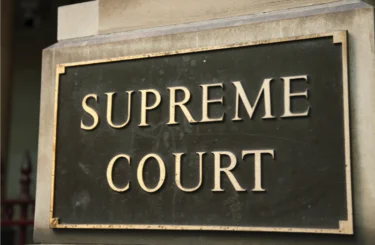
Wells Fargo Accused of Cheating Mortgage Applicants with Unwarranted Rate-Lock Fees
Wells Fargo is facing allegations that it bilked customers by charging them unwarranted rate-lock extension fees when their mortgage applications were delayed – even when the delay was the bank’s fault. The fees are supposed to be charged only when borrowers are responsible for the delay (for example, if borrowers fail to submit their loan documents on time) and want to retain the initially quoted interest rate on their home loan.
The San Francisco bank said that roughly $98 million in rate-lock fees were assessed to approximately 110,000 borrowers, many of whom were not at fault for the delay. The mortgage fee scandal is now the subject of a class action lawsuit, and the Consumer Financial Protection Bureau is investigating the matter.
How Do Rate-Lock Extensions Work?
Interest rates offered on mortgages typically carry expiration dates. The period between the rate offer and the expiration date – called the lock period – typically ranges from 30 to 90 days, although some can be as short as 15 days or as long as 120. During the lock period, the lender cannot raise the rate, even if market interest rates spike. When a loan is not closed within the lock period, the guaranteed rate expires.
To extend the lock period – and retain the initially quoted rate – borrowers must pay a rate-lock extension fee. However, if the delay was caused by the bank, the lock period is extended, and the rate-lock extension fee is waived.
Why Do Banks Charge Unwarranted Rate-Lock Extension Fees?
Rate-lock fees are a significant source of revenue, making them ripe for abuse. The fees typically range from 0.125% to 0.25% of the total amount of a mortgage, depending on the size of the loan and other factors. For a home buyer looking to borrow $400,000, a 0.25% fee is $1,000.
How Do Banks Abuse Rate-Lock Extension Fees?
Typically, banks assure clients they will not have to pay for lock extensions if the delay causing the expiration was the bank’s fault.
However, banks including Wells Fargo are accused of falsely blaming customers for mortgage paperwork delays even when it was the bank’s fault. If a borrower refused to pay the fee, “we just canceled the loan,” a former Wells Fargo employee said.
The attorneys in Sommers Schwartz’s Complex Litigation Department are investigating improper mortgage lending practices and are pursuing creditors who engage in mortgage fraud that violates consumer protection laws. If you believe a lender charged you an unwarranted rate-lock extension fee, please contact us today.
Rod Johnston
Rod Johnston is a member of the Complex Litigation Group, participating in the firm’s direct and class action litigation on behalf of those harmed as a result of wage and overtime violations and consumer fraud.





